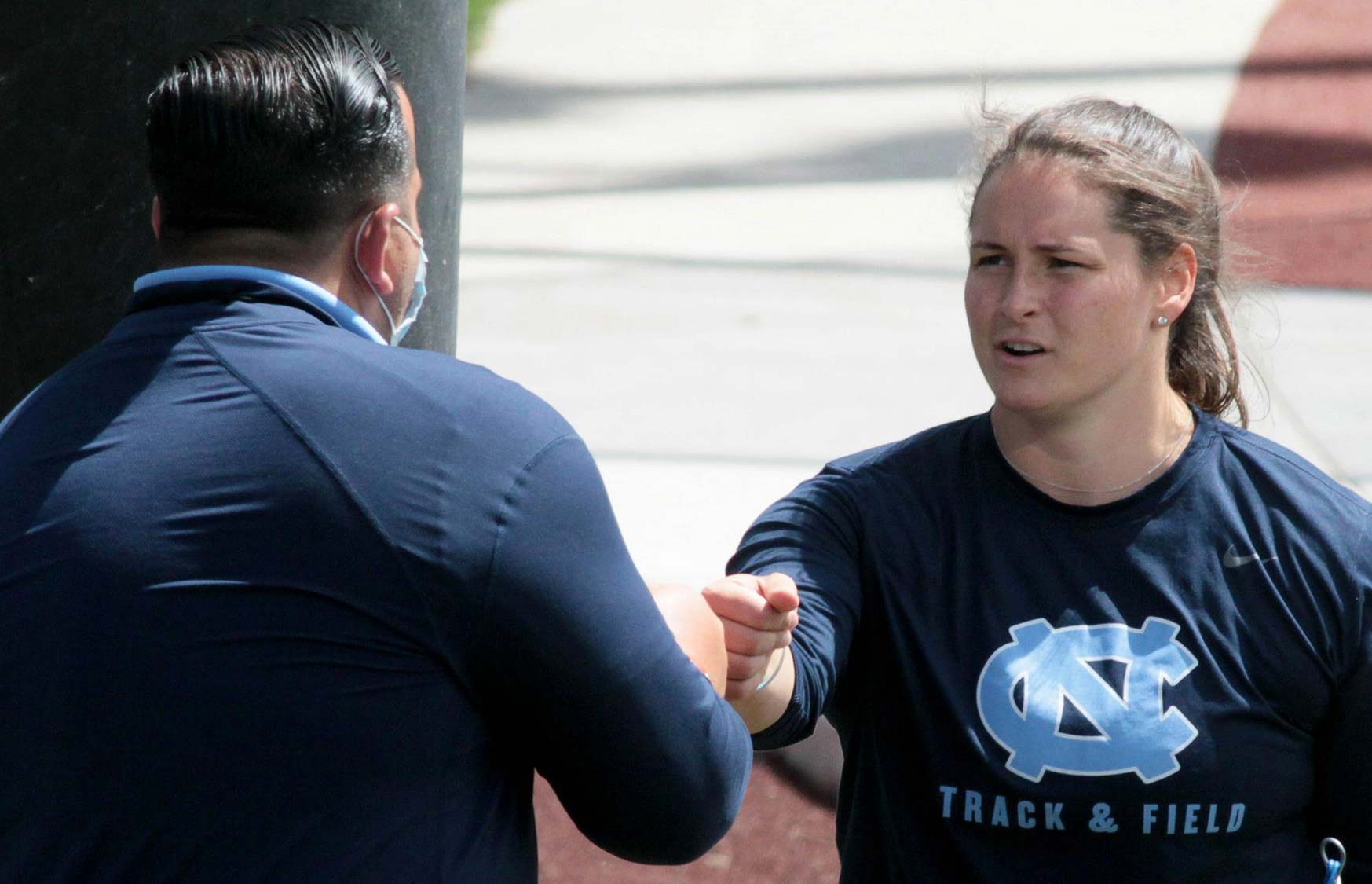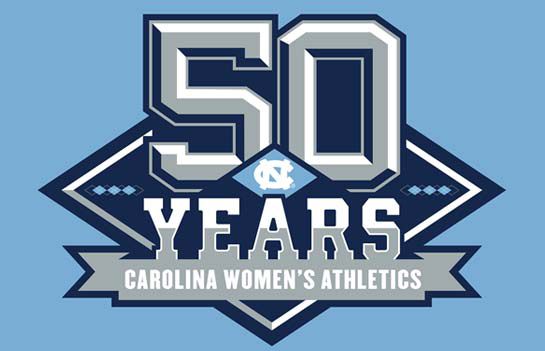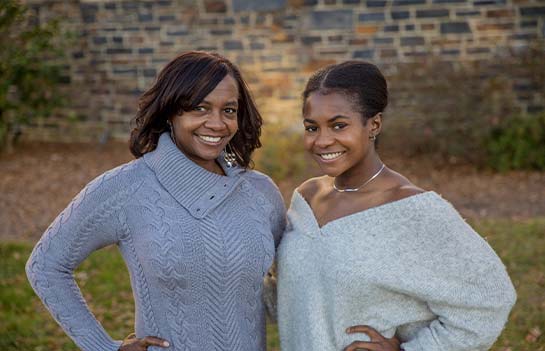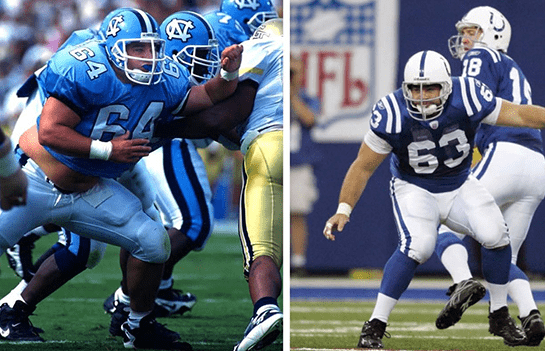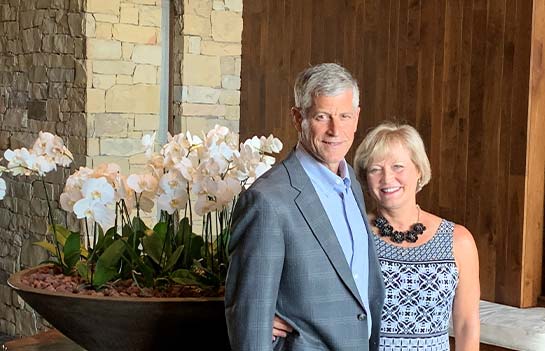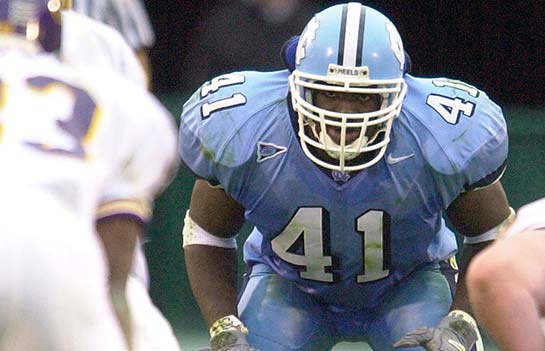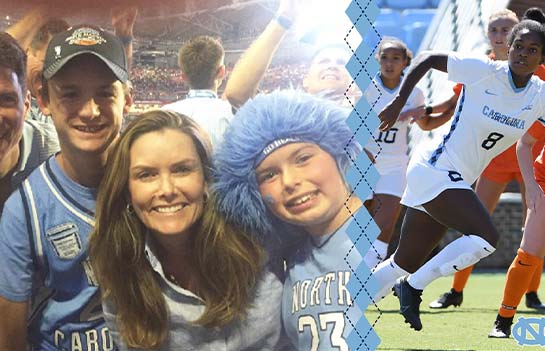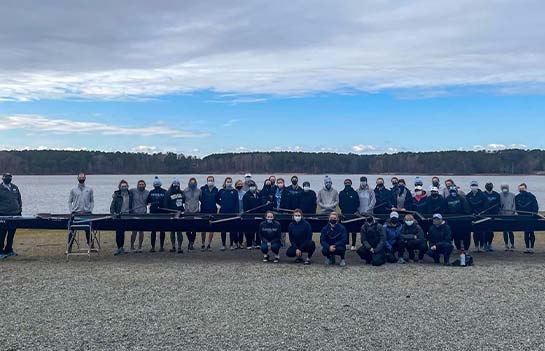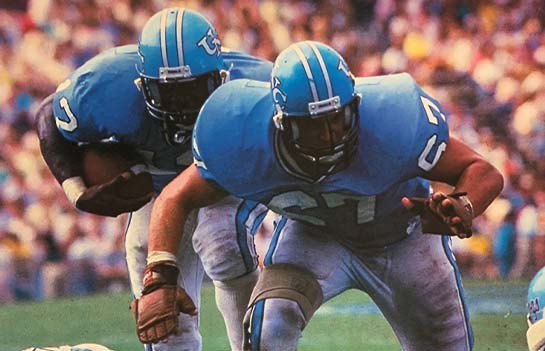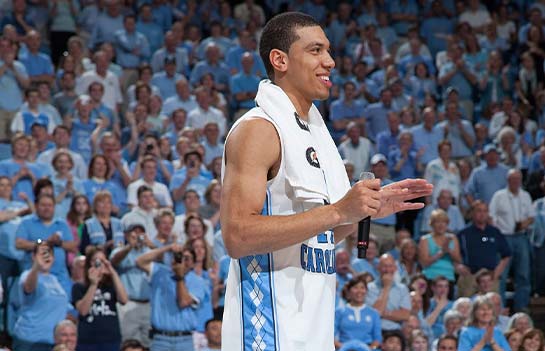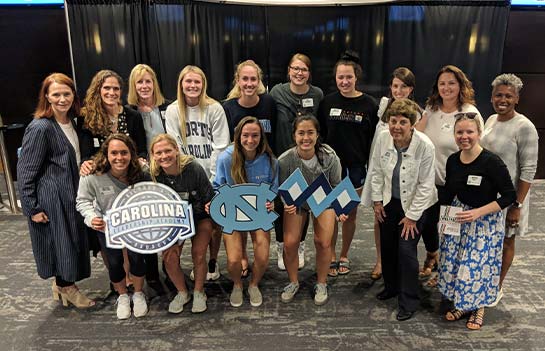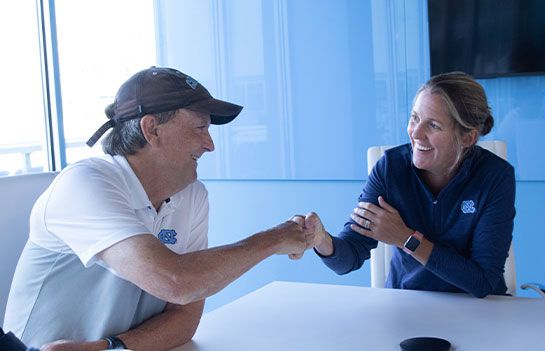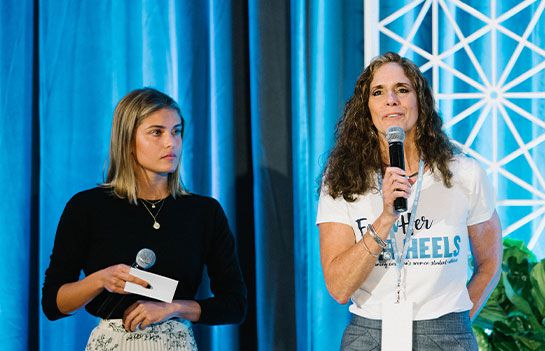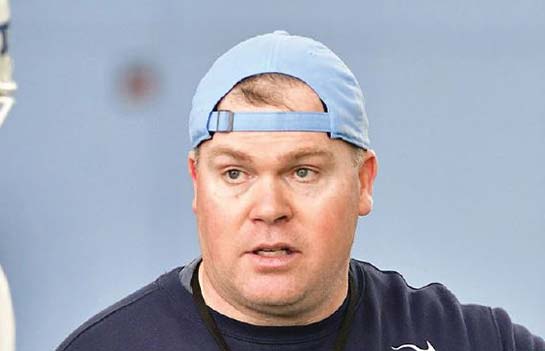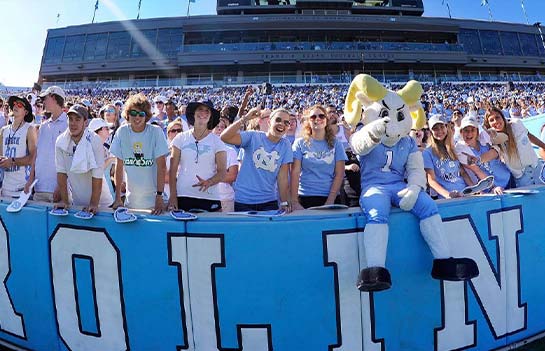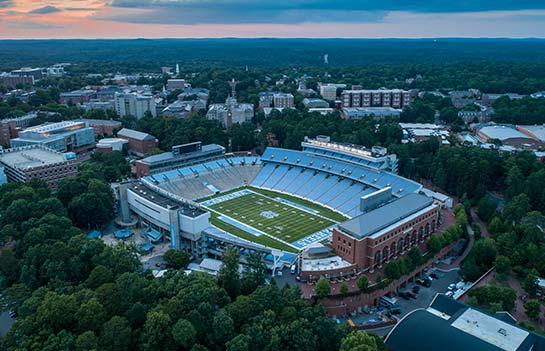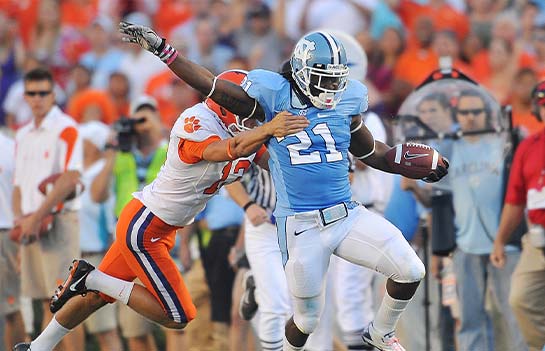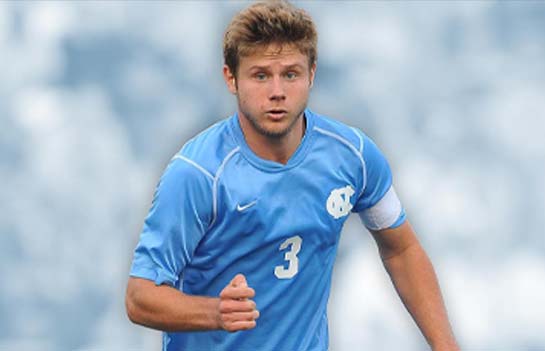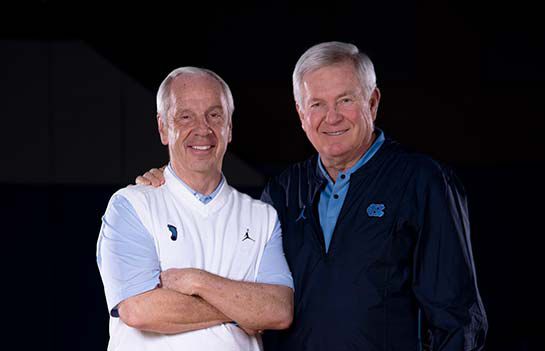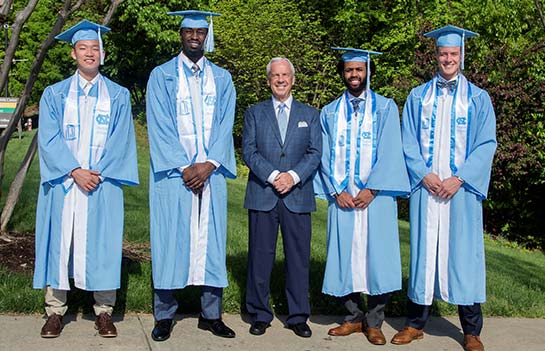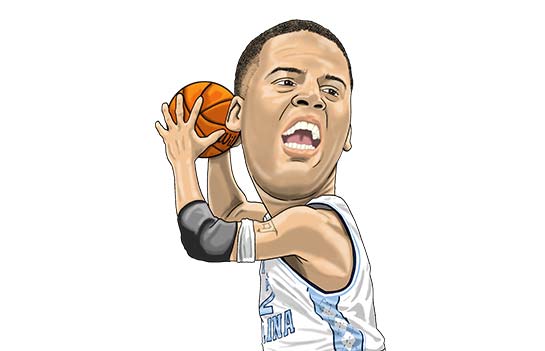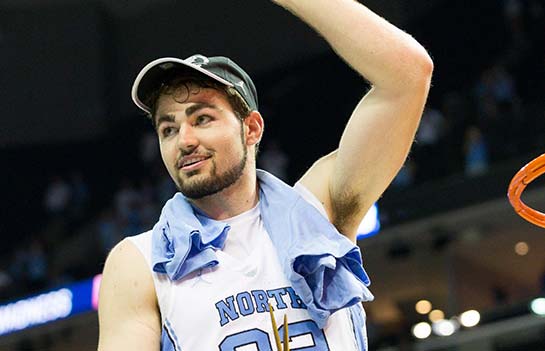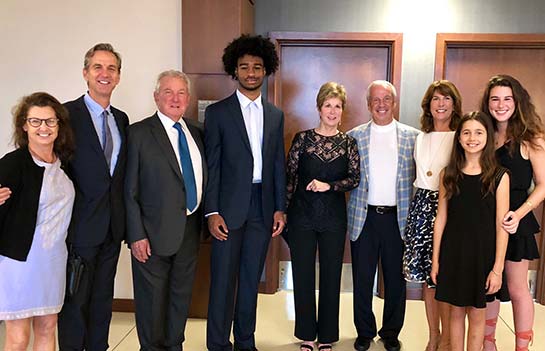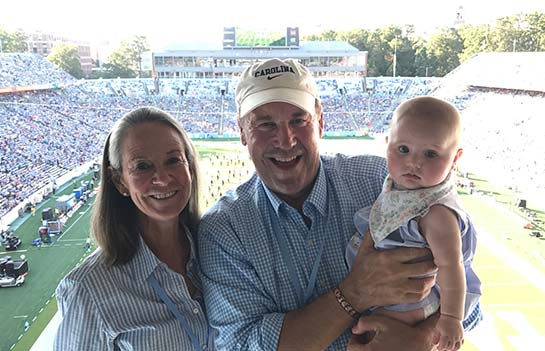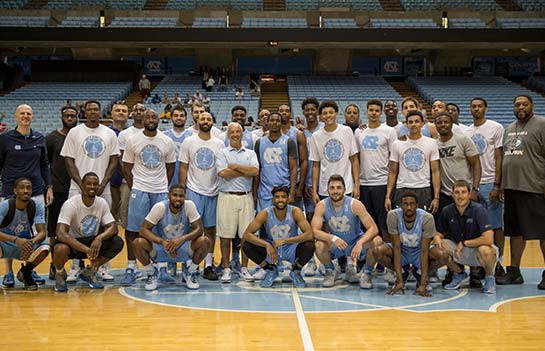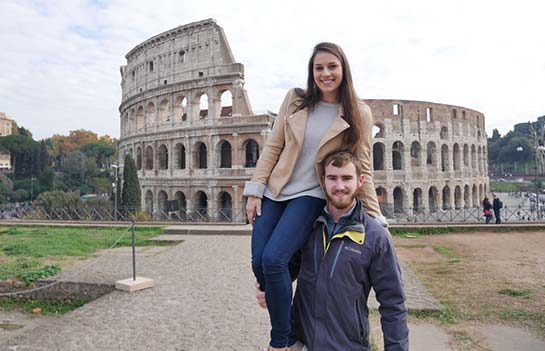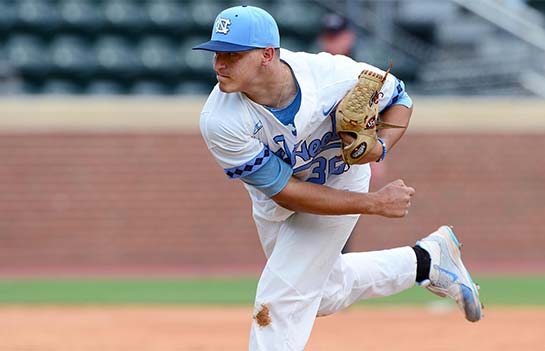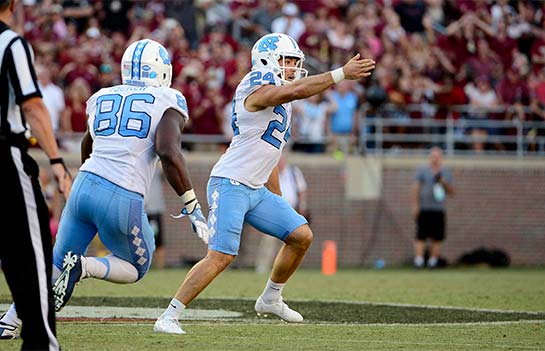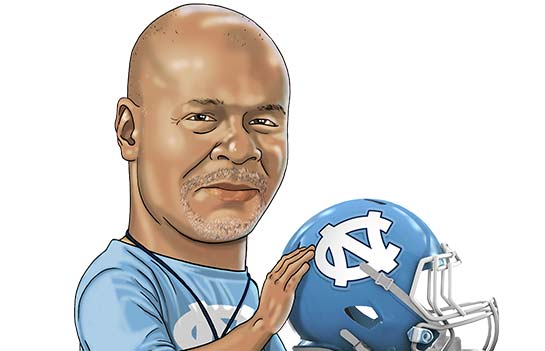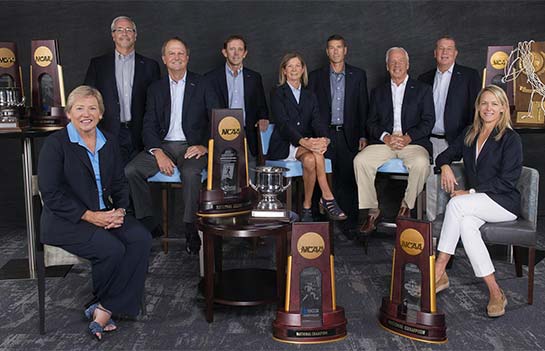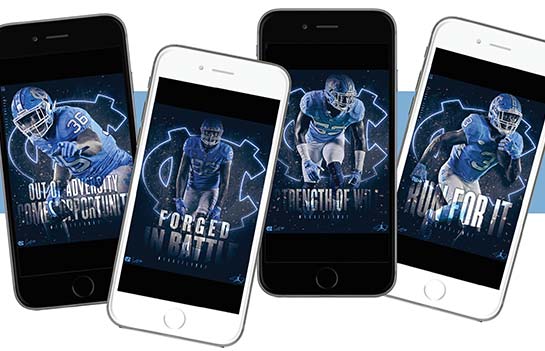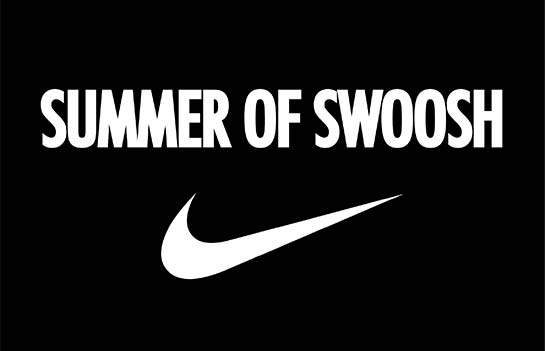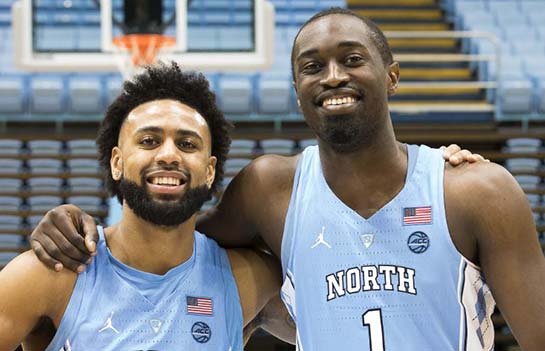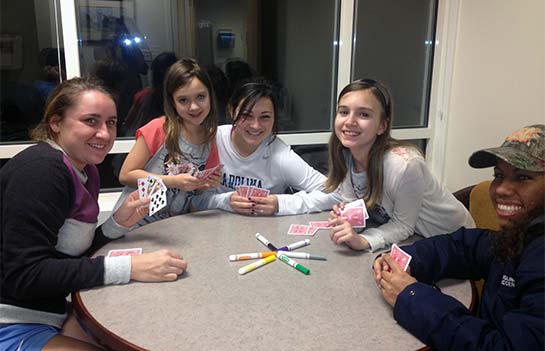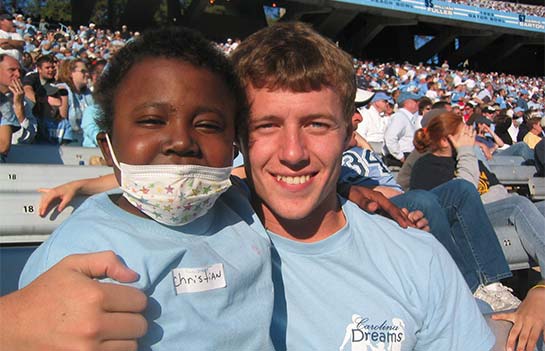THE DEAN SMITH EFFECT
TWO DECADES AFTER HE LAST COACHED A GAME FOR THE TAR HEELS, DEAN SMITH CONTINUES TO HAVE A MAJOR IMPACT
By: Adam Lucas
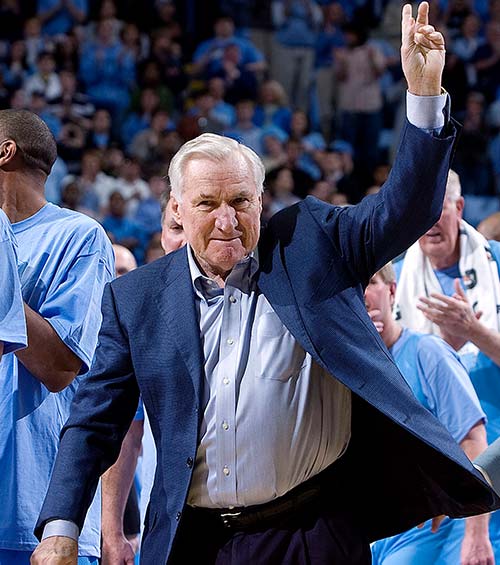
It's been 22 years since Dean Smith last coached a game for the University of North Carolina.
Only three of the players on the current Carolina basketball roster were born when the legendary coach was last on the sidelines, and no members of the current team were enrolled at Carolina when Smith was still alive.
The Carolina program has played more than twice as many games at the arena that bears his name – next season the Tar Heels will play their 500th game at the Dean Smith Center – than it did at Carmichael Auditorium (190 games).
And yet it's still very much the Dean Smith era in Chapel Hill.
All six of the Hall of Fame coaches we interviewed for this issue independently invoked Smith's name when discussing the modern-day culture around the Carolina athletic department. In many ways, 1997 feels like a different world – the Spice Girls were popular, Mike Tyson was a heavyweight boxing contender, and the first Harry Potter book hadn't been released in America yet.
But Dean Smith endures. "He continues to have an extraordinary impact on Carolina even today," says field hockey coach Karen Shelton. "He was the original, and he was the one who when you had to make a decision about the program, you would think, ‘What would Dean Smith do?'" Smith's indelible impact on the Tar Heel basketball program remains obvious. The Carolina basketball family that he created remains strong, due largely to the hard work of Roy Williams. One of Smith's most familiar mantras for his team – play hard, play smart, play together – is posted directly outside the basketball locker room.
But what you might not realize is that the same saying is also written on the outfield wall at Williams Field at Gene Anderson Stadium, the Carolina softball facility. Karen Shelton has occasionally had her field hockey team read Smith's book, "The Carolina Way." Anson Dorrance, one of the most successful coaches in the history of sports, credits Dean Smith with forming the foundation for much of Dorrance's coaching philosophy.
"Coach Smith would invite me to watch his practices," Dorrance said. "Organization was never one of my strongest suits and suddenly I'm watching these practices and they are run like clockwork. I was absolutely stunned by the organization of his practices. He had this accountability system and an assistant manager would record it every time someone missed a shot. At the end of practice, while Coach Smith was addressing the team, the assistant managers would sprint to the scorer's table to talk to the head manager. The head manager would assemble that day's practice rankings and Coach Smith would use that information to determine who had the honor of leaving practice first.
"The accountability he emphasized blew me away. We stole it, and we soccerized it, and we called it the Competitive Cauldron. And that's been the mark of my program since the beginning and we've used it on a national level and on an international level."
And it has, of course, been incredibly successful. Dorrance has won 21 NCAA championships with the Tar Heels and also used those same Dean Smith lessons to build an international powerhouse that won the first Women's World Cup in 1991.
But not every lesson learned from Smith is applied on a playing field. Softball coach Donna Papa still remembers attending an athletic department coach's meeting at the old Slug's at the Pines restaurant just outside of campus.
"I got there a little bit late and all the tables were full except for Coach Smith's," she says. "Phil Ford told me I should sit at Coach Smith's table. I said, ‘No way, I can't do it.' Phil finally convinced me, and Coach Smith was so kind. He greeted me, and we started to talk, and I first tried to talk about basketball. But it became obvious he didn't want to talk about that, and instead we had such a normal, nice conversation.
"Any time after that that I was down at the Smith Center or saw him on campus, he would always talk to me about my team. And not just superficial things, but he really knew details about games we had played and our players. He cared about the details."
Shelton had the same experience. "No matter when I saw Coach Smith, no matter where he was, he would always ask me either something about specific members of my family, or something very specific about our team. Whether we saw him often or not, he was always following the other teams. He always knew what was going on, and always made you feel good about it."
Smith's interest in the athletic department's other programs extended beyond mere formalities. His famous comment, "Carolina is a women's soccer school, and we're just trying to keep up with them," provided recruiting ammunition for Dorrance for decades.
As recently as this season, Sylvia Hatchell reminded her assistants of a conversation she had with Smith regarding recruiting. "We were recruiting a kid who wasn't ranked that highly," Hatchell said. "I told them that I talked to Coach Smith one time and he said, ‘Sylvia, I recruit with one thing.' And he took his fingers and pointed to his eyes. Coach Smith was telling me to trust my eyes and not to get wrapped up in rankings. We still follow that to this day. If we see a kid, and we like the kid, and we think the kid has a great future at Carolina, then it doesn't matter what their rankings are or what other people think."
Today, we take it for granted that an athletic department's shoe and apparel contract covers every program in the department. But in the early 1990s, that was still a relatively new idea. Carolina basketball had been with Converse throughout Smith's tenure, and when the department began discussing a deal with Nike that would go into effect for the 1993-94 season, Smith made one game-changing requirement: he wanted every program in the department to benefit from the deal.
At the time, it wasn't uncommon for individual sports to establish their own apparel and shoe deals, and specifically for college basketball coaches to set up their own shoe deals. Smith's longstanding contract with Converse was largely due to the fact that a former player, Mickey Bell, worked for the shoe company.
But the business of college sports was changing, and Smith and athletic director John Swofford saw an opportunity to provide gear for the entire department. The result was a $4.7 million, four-year contract with Nike that was the grandfather of today's $60 million, ten-year deal. For the 1993-94 school year, the Tar Heels became one of the first athletic departments in the country with an all-department shoe and apparel deal.
"Coach Smith didn't have to do that," Papa said. "He made sure all of our programs were taken care of. It wasn't all about him. He made sure that deal would reach further and extend to everyone in the department."
Current athletic director Bubba Cunningham had minimal interaction with Smith, although he still remembers Smith speaking at a conference he attended as a young college sports hopeful in 1992. But once Cunningham took control of the department in 2011, it didn't take him long to realize the impact Smith still carried.
One of Cunningham's first priorities as athletic director was the formation of a strategic plan. Smith isn't mentioned by name anywhere in the report, but his influence – 15 years after he'd last coached a game for the Tar Heels – was obvious. The plan identified four key values for the Tar Heels:
"I didn't realize it at the time, but all of those relate back to Dean Smith," Cunningham said. "We'd gone to our athletic department staff and asked what was important to them and how they wanted to operate, and that was what they came up with. And every single one of those in some way embodies what Dean Smith believed was important. Reflecting back on them knowing what I know, it's very obvious the impact he's had on all of us and the importance he still has."
RESPONSIBILITY:
Do what is right.
INNOVATION:
Find a better way.
SERVICE:
Put others first.
EXCELLENCE:
Play hard. Play smart.
Win together.
More Stories
The impact of giving comes through in wonderful stories about Carolina student-athletes and coaches, as well as the donors who make their opportunities possible. Learn more about the life-changing impact you can have on a fellow Tar Heel through one of the features included here:
